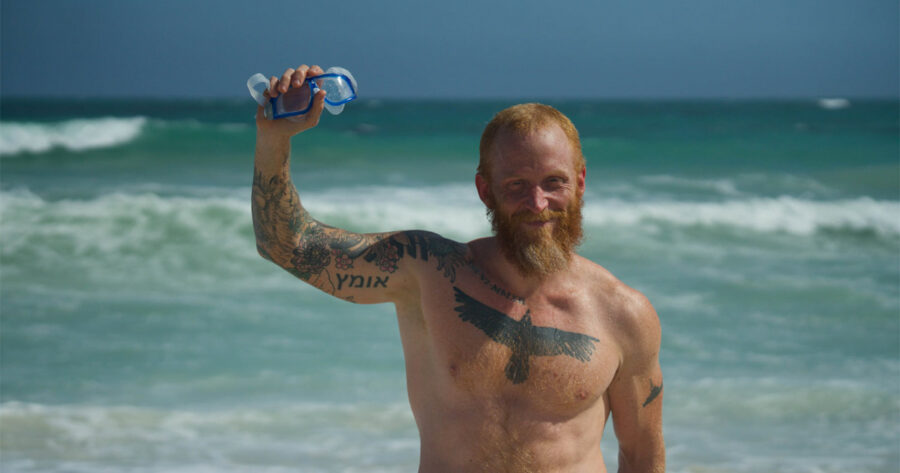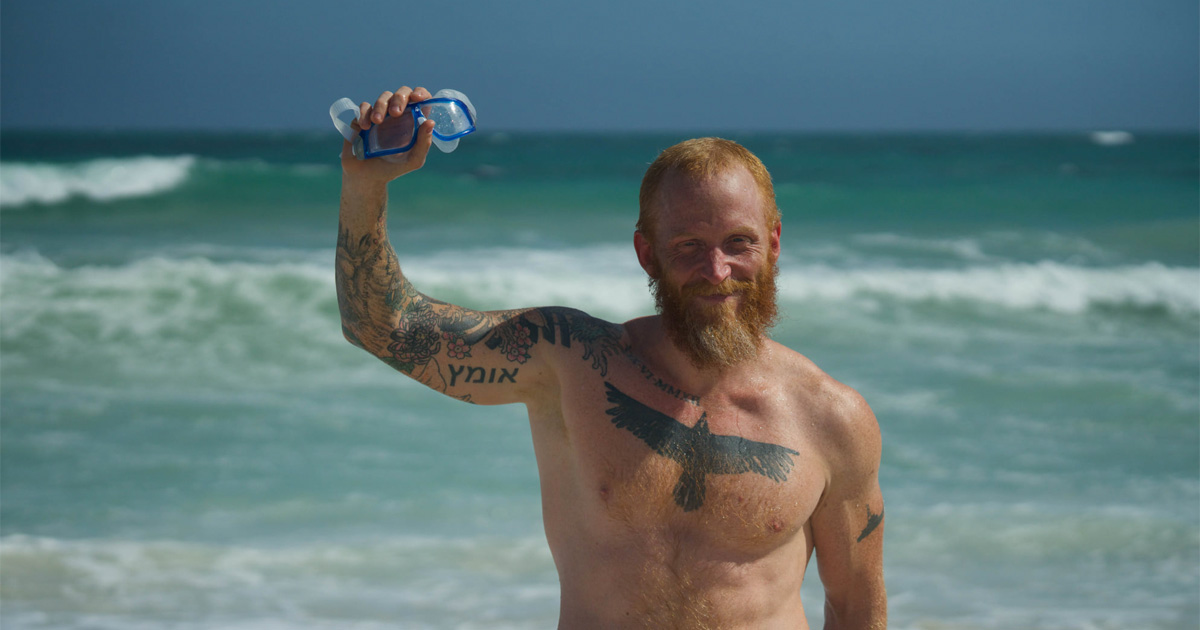
Dewet Du Toit Makes History with ‘Shark Alley’ Swim to Dyer Island for Great White Sharks
South African wildlife conservationist Dewet du Toit has become the first person to swim to Dyer Island in the Western Cape, South Africa, and back… an incredible feat he accomplished on Wednesday (20 October) on behalf of the Great White Shark. The 7.7km swim to and from Dyer Island has never been done before because […]

South African wildlife conservationist Dewet du Toit has become the first person to swim to Dyer Island in the Western Cape, South Africa, and back… an incredible feat he accomplished on Wednesday (20 October) on behalf of the Great White Shark.
The 7.7km swim to and from Dyer Island has never been done before because it would have been suicidal – in the past century, the waters have been world famous for attracting some of the largest congregations of Great White Sharks… but these numbers have been dramatically declining in recent years.

‘The Last Shark Documentary’ announced Dewet’s achievement, saying: “With just a pair of goggles, and a smile, Dewet Du Toit becomes the first person to swim to & from Dyer Island to raise awareness for the plight of the great white shark and its dwindling population here in South Africa.”
Dewet’s swim forms part of the documentary, which is researching the cumulative anthropogenic effects (including that of shark culling nets) causing the disappearance of the great white shark in SA.

Dewet, who describes himself on social media as a “tech-entrepreneur turned conservationist” said on Facebook that this “was a carefully planned attempt which took our safety and the status of the declining population of shark residents into account”.
Remove shark culling nets from east coast
Under the heading “remove our archaic shark culling nets from the east coast”, Dewet pointed out that while 10 people out of a population on the planet of 8 billion were killed by a variety of shark species last year, during the same period 240,000 people drowned.
“We should be 24 000 x more scared of water than of sharks. So why aren’t we? Sharks, like spiders and snakes, occupy an irrational fear segment of our imaginations. Our imaginations exaggerate the risk which sharks pose,” said Dewet, adding “I am not immune to this irrational way of thinking either. It is very humane. I had to experience the effects of this irrational segment of my imagination while prepping for this swim. This is exactly why I chose to do this swim. I knew that doing this swim would draw attention.
“We want to use that attention to lobby for the change in attitude towards our sharks. Sharks all over the world are in deep trouble. Human pressures are driving them to extinction. During my time in Mexico, I saw first hand how an animal is going extinct in real-time. The one thing I took away from there is that the world waited way too long before it got involved.”
Thousands of sharks get killed so that people can play in the water where the sharks live
Dewet says the documentary’s top priority is to apply pressure to KZN politicians to “remove the archaic shark culling nets on the east coast of South Africa. The government uses illegal gillnets to kill thousands and thousands and thousands of protected sharks, dolphins, turtles and fish – many of these barely juveniles. They do this so that people can come and play in the water. And I am all for people enjoying the ocean. But while we mostly play in there, sharks live there. They work there. And the ecosystem needs them more than us.”
According to Dewet, Gillnets are illegal for a good reason – they kill too many non-targeted animals for every one targeted animal they do kill. As a former anti-poaching crew members he says “my crew members pulled an illegal gillnet in Mexico with 66 dead sharks in it, with not a single targeted fish being present in that catch. That is how innefficient gillnets are at targeting a single species of animal. And yet, our KZN government still makes use of them to cull ‘protected’ sharks.
“Despite the fact that our government passed laws which prevent civilians from using these types of nets. Talk about hypocrisy.”
Western Cape leads by example with shark spotters, exclusion nets etc.
Dewet says: “We cannot protect a species on paper and at the same time keep killing them out at sea where no one can see what we’re doing. The Western Cape has led by example using more efficient methods like shark spotters, exclusion nets, etc. Other technologies exist.”
‘The Last Shark Documentary’ will show some of the best alternatives to gillnets. Filming will next focus on diving on the KZN nets to show how they work.
“Help us to change things for the better by liking, sharing or donating,” says Dewet. “We cannot do this without enough of you onboard.”
Whilst thanking his colleagues for their uplifting attitudes and support to enable him to do the Dyer Island swim, Dewet also added: “We do not recommend this swim for fun.”
MORE
- Follow the filming of The Last Shark Doc on FB here.
- Donate to this important doc on GoFundMe or on FB here.
